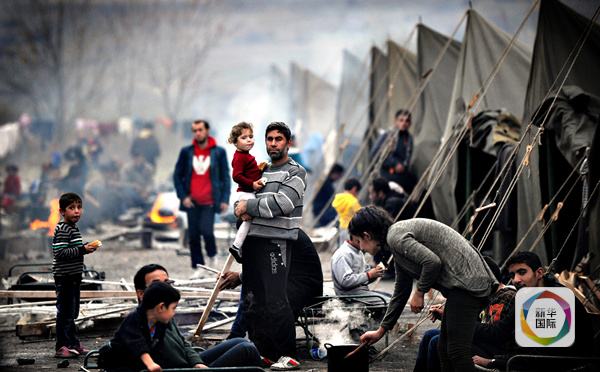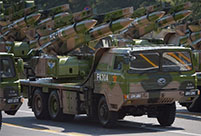

 |
Confronted with the biggest refugee crisis since World War II (WWII), governments across Europe have adopted different stances amid rising calls for more actions on the issue.
Europe's locomotive Germany unveiled a bold plan to increase the federal budget and manpower resources for taking in refugees, as well as measures to speed up the processing of asylum applications.
German Chancellor Angela Merkel told reporters Germany would add 3 billion euros (3.35 billion U.S. dollars) to the 2016 federal budget and provide another 3 billion euros to states and municipalities to handle record numbers of asylum seekers.
Germany, which said it would take 40 percent of all refugees in the European Union, also wants to increase the foreign ministry budget by 400 million euros (446.6 million U.S. dollars) for crisis management and prevention.
Under the plan, 3,000 more federal police will be added over the next three years. Besides, the German Federal Voluntary Service, in which people actively work to achieve social goals, is expecting up to 10,000 additional personnel.
Bracing for an unprecedented influx of up to 800,000 asylum seekers this year, the German government plans to further promote social housing and is working on a law designed to accelerate the construction of refugee shelters.
"What we are experiencing now will change the country in the coming years," Merkel said at the press conference. "We want that change to be positive and we believe we can make that happen."
The chancellor also called for European solidarity amid the current refugee crisis and reiterated her call for a fair distribution of refugees within the European Union.
In a similar gesture, Britain announced it will accept up to 20,000 refugees from Syria by 2020.
"The whole country has been deeply moved by the heart-breaking images we have seen over the past few days," Prime Minister David Cameron told MPs (member of the parliament) of the House of Commons on Monday.
"It's absolutely right that Britain should fulfill the moral responsibility to help those refugees," he said.
Following in the steps of Cameron, Irish Deputy Prime Minister Joan Burton has said that her country can accept, over a period of time, up to 5,000 refugees, according to state broadcaster RTE on Monday.
RTE quoted the Irish Labor Party leader as saying that there will not be a cut-off at that figure.
She was also quoted as saying that Ireland needs to push for a peace settlement in Syria at the UN General Assembly.
However, things stand differently in Denmark. Initially, Danish Prime Minister Lars Loekke Rasmussen extended the offer to take in 100 additional Syrian asylum seekers.
Now he said the offer is off the table after as many as 400 migrants and refugees arrived in Denmark from Austria and Germany over the weekend.
"The European asylum system is on the brink of collapse... It is a problem that Denmark can not solve alone. It has to happen in a European context," the prime minister said, emphasizing that "national regulations will not help if the European asylum system collapses."
Meanwhile, the Danish government on Monday launched an advertising campaign in foreign newspapers aimed at deterring refugees from coming to the country.
The adverts list measures refugees and migrants should take into account if they decide to head for Denmark, including the new cut of social benefits, no possibility of family reunification during the first year, and quick repatriation of rejected asylum seekers.
Denmark's Minister for Immigration, Integration and Housing Inger Stoejberg was cited by Danish news agency Ritzau as saying that Denmark does not want to be part of a common European asylum policy, not even a temporary one.
 Models change clothes on street in Hangzhou
Models change clothes on street in Hangzhou Charming iron ladies in China's upcoming V-Day celebrations
Charming iron ladies in China's upcoming V-Day celebrations In pics: armaments displyed in massive military parade
In pics: armaments displyed in massive military parade Charming Chinese female soldiers
Charming Chinese female soldiers Volunteers required not taller than 5ft 5in
Volunteers required not taller than 5ft 5in  Czech pole dancing master teaches in Xi'an
Czech pole dancing master teaches in Xi'an Shocked! PLA smokescreen vehicle drill
Shocked! PLA smokescreen vehicle drill Foreigners experience tranditional Chinese wedding
Foreigners experience tranditional Chinese wedding Blind date with bikini girls in Nanjing
Blind date with bikini girls in Nanjing Daily life of a living Buddha
Daily life of a living Buddha  Where are Beijing's livehouses going?
Where are Beijing's livehouses going?  Real Tibet can’t be concealed by Dalai’s lies
Real Tibet can’t be concealed by Dalai’s lies  Sino-Israeli trade and tech transfer heightened amid Western nations’ export restrictions
Sino-Israeli trade and tech transfer heightened amid Western nations’ export restrictions Day|Week